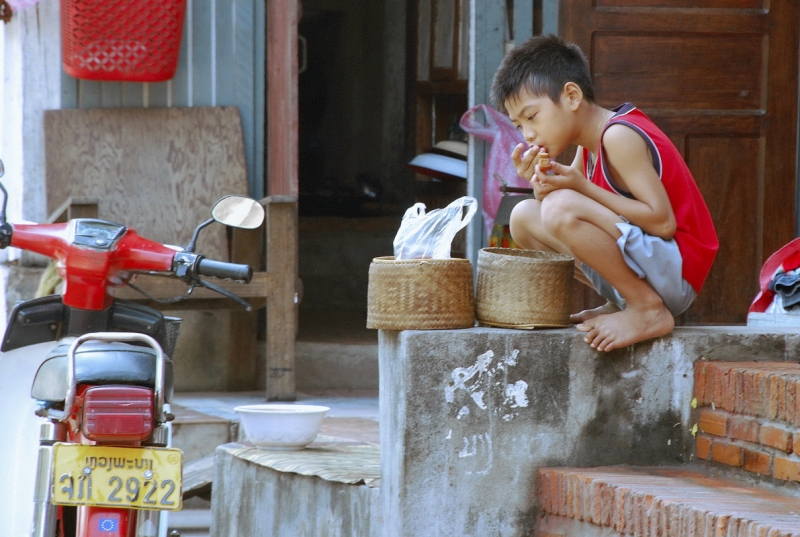




VIENTIANE, March 17 (Xinhua) -- Approximately 6,000 children under five years old in Laos reportedly die every year resulting from a lack of proper nutrition, according to the latest survey.
As many as 36.5 percent of children in Laos are facing stunting that will pose negative impacts for long term national development, the survey said.
The statistics were reported at a meeting on Research and Intervention, Maternal Health and Infections under the theme "Important Elements for the Development of Healthy Fetuses, Infants and Young Children" held in Lao capital Vientiane on Friday.
The lack of proper nutrition is estimated to cost the Southeast Asian country some 197 million U.S. dollars or 2.4 percent of Gross Domestic Product per year, Lao state-run news agency KPL quoted the survey, which was conducted in 2015, as saying.
"The rate of stunting has been recorded as high as 40 percent for children from the nine provinces of Phongsaly, Luang Namtha, Luang Prabang, Huaphan, Xieng Khuang, Xaysomboun, Salavan, Sekong and Attapeu," said Deputy Director of the Nutrition Center Ratthiphone Ula.
Four in 10 children under five years in Laos are anaemic. Among children, 9.6 percent of those under five years of age had acute malnutrition or wasting (low weight for height/length). In the three provinces of Khammuane, Savannakhet and Salavan, wasting exceeds the World Health Organization's "serious" threshold of 10 percent, said Ratthiphone.
Nutrition remains a challenge for Lao government in achieving its millennium development goals by 2017 and sustainable development goals, which has targets for zero hunger underlined in the national development plan on nutrition for 2016-2025 and the action plan for 2016-2020.
In a related situation, UNICEF has provided 7.2 million U.S. dollars for interventions in health, nutrition, and the Water, Sanitation and Hygiene (WASH) program in rural areas of Laos.
The cooperation will strengthen district health systems to ensure the implementation of the essential service package along the continuum of care approach and support the implementation of nutrition specific interventions including the feeding of infants and young children.
The work plan 2017-2018 will also support community service delivery of high impact new-born and child interventions to address morbidity due to common complications and implement WASH and climate change resilience policies, including the national strategy on rural water, sanitation and hygiene, and conduct reviews of guidelines, standards and designs of packages for WASH facilities in communities and schools.